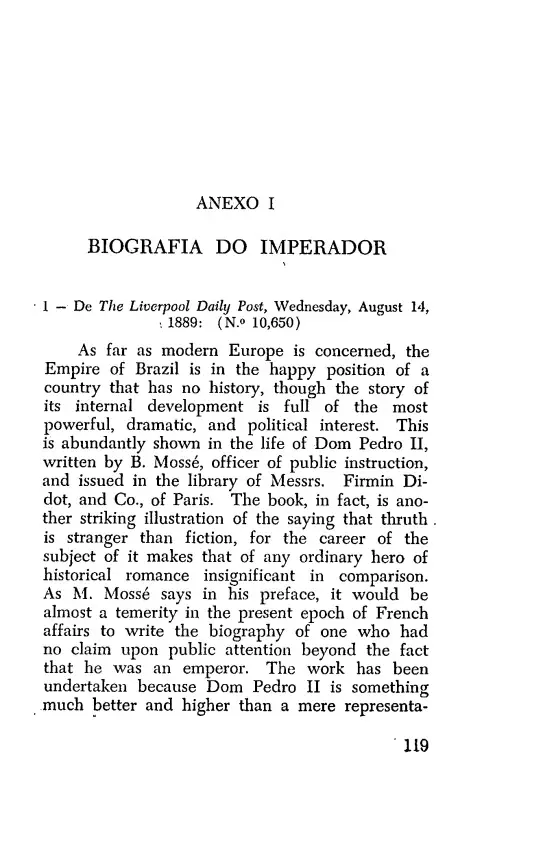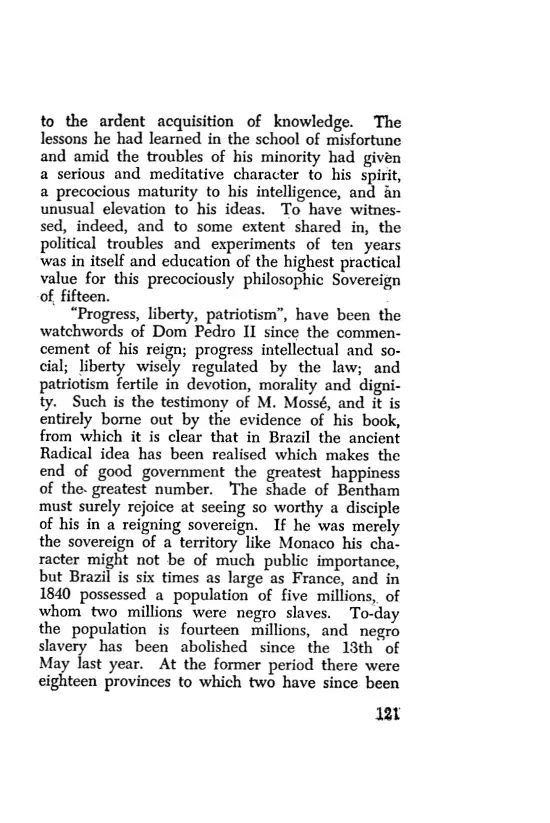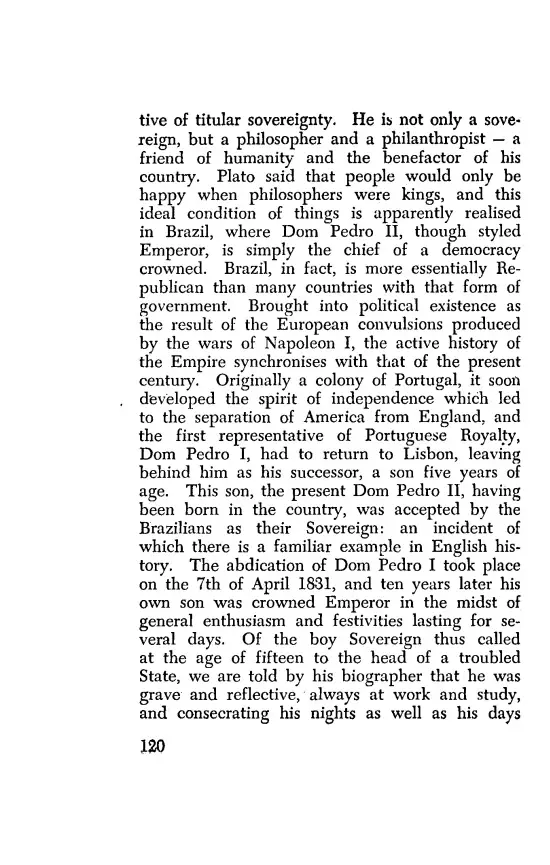of titular sovereignty. He is not only a sovereign, but a philosopher and a philanthropist - a friend of humanity and the benefactor of his country. Plato said that people would only be happy when philosophers were kings, and this ideal condition of things is apparently realised in Brazil, where Dom Pedro II, though styled Emperor, is simply the chief of a democracy crowned. Brazil, in fact, is more essentially Republican than many countries with that form of government. Brought into political existence as the result of the European convulsions produced by the wars of Napoleon I, the active history of the Empire synchronises with that of the present century. Originally a colony of Portugal, it soon developed the spirit of independence which led to the separation of America from England, and the first representative of Portuguese Royalty, Dom Pedro I, had to return to Lisbon, leaving behind him as his successor, a son five years of age. This son, the present Dom Pedro II, having been born in the country, was accepted by the Brazilians as their Sovereign: an incident of which there is a familiar example in English history. The abdication of Dom Pedro I took place on the 7th of April 1831, and ten years later his own son was crowned Emperor in the midst of general enthusiasm and festivities lasting for several days. Of the boy Sovereign thus called at the age of fifteen to the head of a troubled State, we are told by his biographer that he was grave and reflective, always at work and study, and consecrating his nights as well as his days


